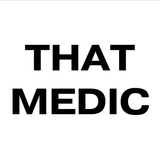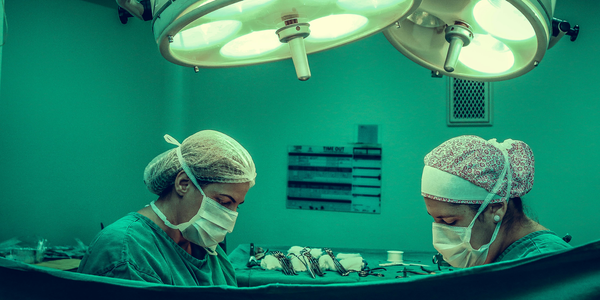Are Surgeons Valuable in 2023?

Yes.
Of course,
and by the end of this article I want to remind you of your value as a surgeon in our society today. It is likely that most readers would perceive this notion as absurd since the value of a surgeon is widely acknowledged.
That may be the general case but increasingly so surgeons are left feeling undervalued and underappreciated.
We currently live in difficult and austere times; where government services are being cut. Doctors and specifically surgeons have been feeling increasingly undervalued for the past decade. In this article, I want to re-emphasise the impact and value that surgeons have. As a trainee, I see morale amongst doctors coming up and my surgical colleagues being at an all time low. It's easy to feel undervalued when you're paid £24/ hour as a senior surgical trainee, unable to buy a one bedroom flat in the city you live in and need to pick up extra locum shifts every time you want to make a purchase or go on holiday. It's easy to feel undervalued when all your clinics are overbooked and your annual leave or study leave gets rejected. It's easy to feel undervalued when the government refuses to restore your pay after numerous strikes and your friends, who you persistently outperformed at school, are being rewarded with pay rise after pay rise.
That feeling is amplified by the enormous sacrifice you made during a global pandemic not even two years ago.
Despite all this, it's my feeling that you should not give it all up and search for a more relaxed job that pays you five-times more. Let me remind you of your value.
Value #1
You perform life saving and often life changing operations on a regular basis.
The average surgical trainee will perform hundreds of procedures a year. 10% of these will be emergency operations that cannot be delayed and are often life saving.
Worldwide 300 million operations take place every single year, unfortunately the 97% of these occur in developed countries. It is estimated 2 billion people do not have access to surgical care which results in a great deal of morbidity and mortality. To paint this picture further, there are 700 million people above the age of 65 worldwide. It is estimated 100 million people will have blindness secondary to cataract, yet only 10 million cataract operations take place a year - majority of which will be in developed nations. To think that 90 million people, due to a lack of access to surgery are now blind is mind-boggling.
This is the impact surgeons have on the world. You don't have to look too far to see this. WHO statistics state that 2 billion people do not have access to surgical care worldwide. Think how many people cannot walk due to a lack of access to orthopaedic operations, how many people cannot hear due to a lack of access to otologic operations, how many people who die because they're appendicitis was not operated on.
Although often taken for granted in this country; you are doing incredible work, changing lives and saving lives every single day, without even sweating.
Value #2
You are highly skilled and very difficult to replace.
Let me remind you of how you got to where you are right now.
You outcompeted the vast majority of your peers at school then proceeded to interview and rank in the top 10% of A-Level students to get an offer to study medicine. Out of all the hundreds of applicants interviewed on that day they chose you.
You completed medical school, probably published or presented at international or national conferences. You completed two years of foundation training, interviewed and ranked in the top 30% of applications to secure a core surgical job.
You completed two years of core surgical training, published lots of papers, presented at even more conferences, studied and passed your MRCS examinations, which have a 45% pass rate.
You then apply for speciality training where you have to rank in the top 5-15% of applications to secure the speciality that you want.
10 years on you sit your FRCS examinations which have a 65% pass rate to complete your training as a fully qualified surgeon. I won't even begin to mention those that complete fellowship and PhDs to further supplement their training and contribute to the wider literature and progress within their field.
After 15 to 20 years of rigorous, unrelenting training and sacrifice you now have the unique skillset to save and even change the course of a patient's life.
Value #3
You are very unique. There are very, very few surgeons in the UK let alone the world.
The competition ratios speak for themselves, very few people make it to become surgeons or surgical trainees. As it stands there are 25,000 surgeons in the UK serving a population of 67.3 million. Of these 25,000 there are 10,000 Consultants, 8,000 Registrars, 4,500 Senior House Officers and 2,000 House Officers.
If you look into your sub-speciality you're even more unique. As an ENT Registrar I am one of 700 in the United Kingdom. Look internationally and the numbers are even fewer! There are 14 surgeons for every 100,000 in the UK, compared to 1.3 in Kenya and 0.03 in Afghanistan.
Value #4
The job is bloody great.
It's challenging. It's mentally stimulating. It's rewarding. It's human. It involves technology and innovation. You work with incredible colleagues. You're constantly learning, not just about surgery but about humans, stories and life.
The job will equip you to make huge decisions on a daily basis; pre-operatively, intra-operatively and clinically without sweating. The reason being is you are trained very well. For all its flaws the NHS produces incredible surgeons. By the end of my training I am expected to have performed 2,000 operations and have looked after 1,000 emergency cases. This level of breadth and depth doesn't compare to other training systems around the world.
Conclusion
There is a colossal list of things wrong with surgical practice and training in the United Kingdom. From the administrative burden left to surgeons, to the managerial nonsense we put up with, to the hoops we have to jump through for such little pay. Despite this, it is important to remember why we do it.
We get to perform incredible, highly specialised and difficult operations that make a real impact on real people. People with lives as busy, intertwined and as complex as our own.
The crux of the matter is that with changing governments and tides there will be organisational challenges that make our lives as surgeons difficult and leave us feeling undervalued. This should not however change the profession and the value we have on our modern society. We need only zoom out to the international picture to see this.




